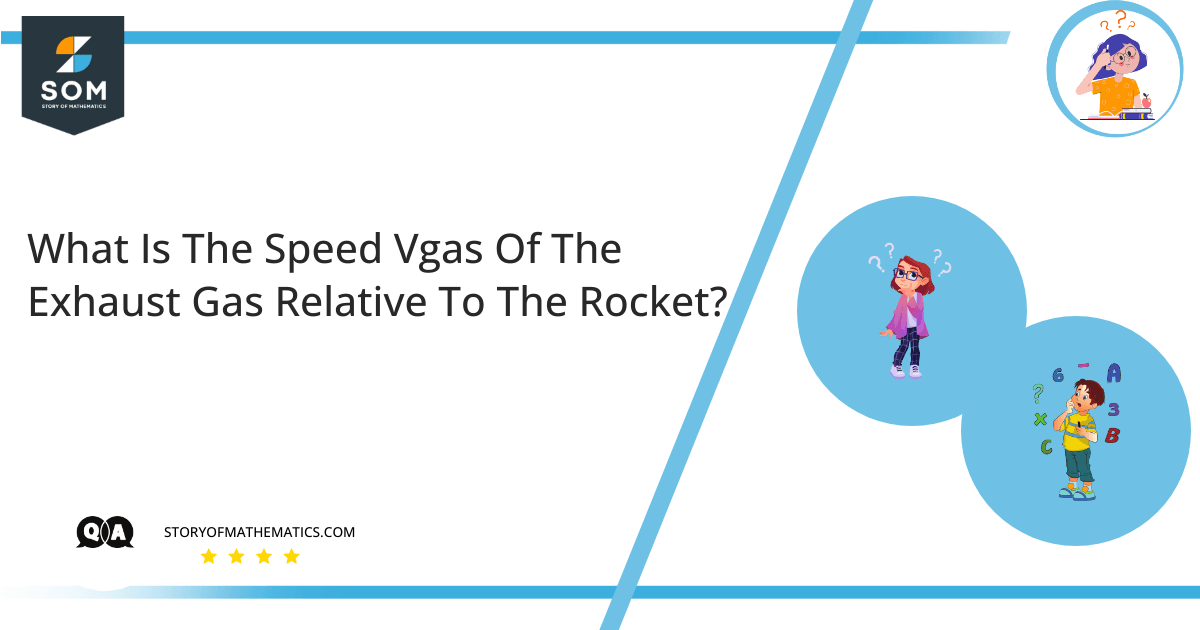
- A rocket is fired in deep space, where gravity is negligible. In the first second, the rocket ejects $\dfrac{1}{160}$ of its mass as exhaust gas and has an acceleration of $16.0$ $\dfrac{m^2}{s}$.
What is the speed of exhaust gas relative to the rocket?
Rockets use propulsion and acceleration to lift off from the ground. Rocket propulsion uses $Newton’s$ $Third$ $Law$ $of$ $Motion$, which states that for every action, there is an equal and opposite reaction. The statement means that there is a pair of forces acting on the two interacting bodies in every interaction.
The quantity of the forces acting on one object will always be equal to the force acting on the second body, but the direction of the force will be the opposite. Hence, there is always a pair of forces, i.e., pair of equal & opposite action-reaction forces.
In the case of a rocket, forces exerted by its exhaust in one direction causes the rocket to move with the same force in the opposite direction. But rocket lift is only possible if the thrust of rocket exhaust exceeds the gravitational pull of Earth $(g)$, but in deep space, as there is no gravitation, $(g)$ is negligible. The thrust produced by exhaust will result in equal propulsion in the opposite direction as per Newton’s Third Law of Motion.
Thrust force of rocket is defined as:
\[F=ma=v_g\ \frac{dm}{dt}-g\]
Where:
$F$ is the Thrust Force
$m$ is the mass of the rocket
$a$ is the acceleration of the rocket
$v_{g}$ is the speed of the exhaust gas relative to the rocket.
$dm$ is the mass of the ejected gas
$dt$ is the time taken to eject the gas
$g$ is the acceleration due to gravity
Expert Answer
In the given question, we are asked to calculate the speed of Rocket Exhaust relative to the rocket at the time of ejection.
Given Data is as follows:
Ejection Mass is $\dfrac{1}{160}$ of its total mass $m$
Time $t$ = $1$ $sec$
Acceleration $a =$ $16.0$ $\dfrac{m^2}{s}$
As rocket is in deep space, hence $g = 0$ as there is no gravitational pull.
We know that:
\[F=ma=v_g\ \frac{dm}{dt}-g\]
As $g = 0$ in deep space, hence
\[v_g=\ \frac{ma}{\dfrac{dm}{dt}}\]
Since,
\[\frac{dm}{dt}=\frac{1}{160}\times\ m=\frac{m}{160}\]
Hence,
\[v_g=\ \frac{m\times16}{m\times\dfrac{1}{160}}\]
Cancelling out mass $m$ of Rocket from numerator and denominator, we resolve the equation as follows:
\[v_g=16\times160=2560\dfrac{m}{s}\]
Numerical Results
So the speed $v_{g}$ of the exhaust gas relative to the rocket is $2560\frac{m}{s}$.
Example
In deep space, Rocket ejects $\dfrac{1}{60}$ of its mass in the first second of flight with a velocity of $2400\dfrac{m}{s}$. What would be the acceleration of the rocket?
Given that:
\[v_g=2400\frac{m}{s}\]
We know that:
\[F=ma=v_g\ \dfrac{dm}{dt}-g\]
As $g = 0$ in deep space, hence,
\[a=\ \frac{v_g}{m}\times\dfrac{dm}{dt}\]
Since:
\[\frac{dm}{dt}=\frac{1}{60}\times\ m=\frac{m}{60}\]
Hence:
\[a=\ \frac{2400}{m}\times\frac{m}{60}\]
Cancelling out mass $m$ of Rocket from numerator and denominator, we resolve the equation as follows:
\[a=\frac{2400}{60}=40\frac{m^2}{s}\]
So the acceleration $a$ of the rocket is $40\dfrac{m^2}{s}$.
